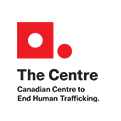
Uber teams up with The Canadian Centre to End Human Trafficking and ECPAT-USA to help educate drivers and delivery people on how to spot and report human trafficking
Human trafficking continues to be a hidden crime taking place in our communities. Uber will send drivers and delivery people across Canada tips and a podcast to help them spot signs of human trafficking.
Toronto, Canada (July 30, 2020) – July 30th is United Nations World Day Against Trafficking in Persons. To commemorate this day, Uber is providing new resources and refreshed tips to drivers and delivery people so they are aware of the signs to identify and report human trafficking or reach out for help.
It’s estimated that nearly 25 million people around the world are trapped in some form of human trafficking. As the global COVID-19 pandemic continues to impact our cities, the resulting economic instability and social disruption has consequently caused many individuals to be more vulnerable to violence, abuse, and human trafficking. The Canadian Centre to End Human Trafficking, operator of the Canadian Human Trafficking Hotline, continues to receive many calls about human trafficking amidst the COVID-19 pandemic in Canada.
That’s why raising awareness about this issue is now more important than ever. Even with less travel and transportation, we know that people, including drivers and delivery people, need the resources to understand how and why trafficking presents itself, and who to reach out to for help.
Working alongside The Canadian Centre to End Human Trafficking (CCTEHT) and ECPAT-USA, two of Uber’s valued anti-trafficking advocacy partners and leading experts in human trafficking awareness, we have developed resources and Tips for Identifying Human Trafficking, including a special podcast where drivers can learn more about the Hotline and what to expect if they reach out.
“We want to reinforce our commitment to help raise awareness of this heinous crime and be a part of the solution by using our technology and expansive network to help mobilize communities and connect people to further resources,” said Matt Olsen, Uber’s Chief Trust and Security Officer. “Drivers and delivery people are in a unique position because they have the proximity and context to interact with at-risk individuals through the Uber platform. By providing them resources and education with the help of The Centre and ECPAT-USA, we want to encourage them to be vigilant while on the road.”
“It’s an unfortunate reality, but traffickers readily utilize ride-sharing platforms to move victims around and avoid detection. By reading the updated indicators of human trafficking and listening to the podcast, drivers and delivery people can feel empowered to call the Canadian Human Trafficking Hotline if they have questions, need resources or something just doesn’t feel right.” – Julia Drydyk, Executive Director, The Canadian Centre to End Human Trafficking
“On World Day Against Trafficking in Persons, it is more important than ever to acknowledge that exploitation affects vulnerable communities in every country. ECPAT-USA is profoundly grateful for Uber’s continued leadership on this issue and support of our work to protect our most vulnerable population – our children,” said Lori L. Cohen, Executive Director of ECPAT-USA. “With these new resources, drivers and delivery people will serve as crucial partners in helping prevent and eliminate child sex trafficking and exploitation.”
“Our government stands firmly against any form of human trafficking. We believe that we must work across jurisdictions and with community groups, the private sector, educators, Indigenous leaders and justice partners to ensure a layered, multi-faceted approach that provides more education, more prevention, more protection and more support for survivors, especially children. We are committed to fighting against this horrific crime.” – Jill Dunlop, Associate Minister of Children and Women’s Issues, and Sylvia Jones, Solicitor General of Ontario
If you believe you’ve witnessed something that might be human trafficking, or if you or someone you know might need help for an at-risk situation, you can call the Canadian Human Trafficking Hotline at 1-833-900-1010. We’ve also teamed up with the Canadian Centre to End Human Trafficking on a special podcast where you can learn more about the Hotline and what to expect if you reach out.
Learn more about Uber’s efforts to help combat human trafficking.
